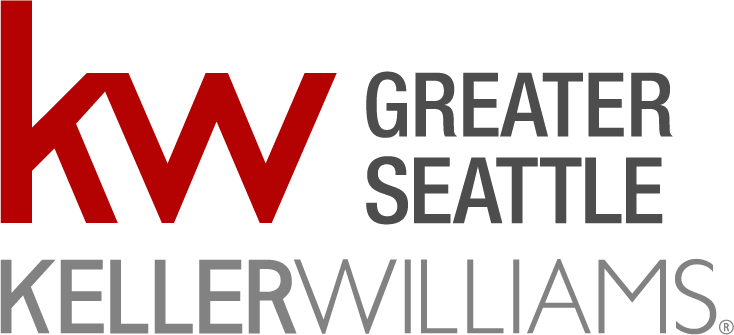FHA condo guideline changes
 Update: Since this post was originally published, the implementation date was postponed from November 2nd to December 7th. Some additional changes and clarifications are expected.
Update: Since this post was originally published, the implementation date was postponed from November 2nd to December 7th. Some additional changes and clarifications are expected.
Implementation has been postponed, again, to February 1, 2010. Additionally, some of the changes have been altered since they were first proposed.
FHA has revised its guidelines for condominium mortgages. The new guidelines will take effect with all case numbers assigned on and after February 1, 2010 December 7, 2009 November 2, 2009. (Note: the guidelines were initially scheduled to take effect on October 1, 2009 but have been delayed to February 1st.)
FHA is implementing a new approval process for condominium projects, and with it, the elimination of the “spot approval” process. Spot approvals were used by lenders to qualify an individual buyer’s condo purchase using FHA where the condo project was not previously approved by HUD/FHA. In its place is a new streamlined process, which may affect buyers, sellers/developers and homeowner associations.
With FHA loans becoming more prevalent with its low down payment and flexible eligibility requirements, condo buyers, sellers and their HOAs should keep these changes in mind. For instance, if an HOA has not yet conducted a reserve study, they will now need to do so if owners wish to sell to an FHA buyer, who are becoming an increasingly larger segment of home buyers.
Owner occupancy:
+ Prior to February 1st: 51% of the units must be owner occupied.
+ As of February 1st: 50% must be owner occupied or sold to owners who intend to reside in the unit.
Single owner status:
+ Prior to February 1st: No single entity may own more than 10% of the units.
+ As of February 1st: No more than 10% may be owned by one investor. This applies to builders that subsequently rent vacant and unsold units. This will not only affect the developer who intends to sell their unsold units, but also to existing unit owners in the project. For 2 or 3-unit buildings, no single entity may own more than one unit.
FHA Concentration:
+ Prior to February 1st: For projects over 30 units, no more than 10% may be insured by FHA; for projects with less than 30 units, no more than 20% may be insured by FHA.
+ As of February 1st: For projects with 4 or more units, no more than 50% (temporarily increased through 2011) 30% may be insured by FHA; for 2 or 3 unit projects, only one may be insured with FHA. The change increases the FHA concentration allowing for a greater number of FHA buyers/owners.
Reserve Study:
+ Prior to February 1st: No requirement. However, Washington State law requires homeowner associations to conduct reserve studies, though there is no enforcement provision.
+ As of February 1st: FHA will require that a current reserve study must be performed to assure adequate funds, which must not be more than 12 months old. This is a good change as it’ll incent the HOA to conduct a reserve study.
Insurance:
+ Prior to February 1st: The HOA must provide evidence of appropriate hazard, liability and flood insurance.
+ As of February 1st: The project must be covered by hazard and liability insured, and were applicable, flood insurance.
Other changes include:
Arrears: No more than 15% of the total units may be in arrears of their HOA dues (30 days past due).
Commercial space: Nore more than 25% of the property’s total floor area in a project can be used for commercial purposes.
Conversions: The one year waiting period is eliminated, though the project, including common areas, must be 100% complete.
Endorsement: At least 50% of the units must be sold prior to endorsement of any mortgage on a unit.
Legal phasing: Allows the owner occupancy percentage to be based on release phases.
Recertification: Project approvals will expire two years from the date it was placed on the approved condo list and must be re-certified every two years.
As it is currently written, once the two years are up and condos need to be re-certified, as well as those projects hoping to be approved, may run into an issue with the environmental review section of the guidelines. The guidelines do not allow for projects to be within 1,000 of a highway/freeway, within 3,000 feet of a railroad and within 1 mile of an airport. Potentially, this could affect numerous projects along I-5, Aurora Avenue and throughout Belltown. However, it’s likely the rules may be amended again within the next two years.
This is only intended to provide a high-level overview of the upcoming changes to FHA backed mortgages. For more specific information, including whether FHA is an option for you, please consult with a FHA mortgage specialist.
Sources: HUD Mortgage Letter 2009-19 (WORD download), Guild Mortgage Company, and the Talon Group.





FRIENDS DON’T LET FRIENDS BUY CONDOS…..
And friends in Washington State, especially, don’t let friends buy condos!
HUD insiders report that Washington State has the highest rejection rate in the country for FHA condo mortgage applications because of the inordinately high number of poorly funded associations….
As one HUD spokesperson (who wished to remain anonymous) put it recently;
“do those people even know what a reserve study is in Washington?”
Not only are Seattle area condos grossly overpriced but in the majority of cases the association is a financial train wreck just waiting to happen.
The 2008 law requiring condo associations is meaningless because the gutless Washington State legislature didn’t have the BALLS to write law with any enforcement tooth in it.
If you buy a condo in Washington you do so at your own risk.
CondoMonster,
Any real estate purchase potentially comes with risk, not just condos.
You do bring up a great point, condo buyers must do their due diligence in regards to their review of the management of a condo’s HOA, maintenance/upkeep and funds. There are additional risks assumed by condo buyers in respects to deferred maintenance, under funded reserves, insolvent developers, etc.
Perhaps, the FHA guidelines will prompt more associations to be proactive in conducting reserve studies, but really, the law needs to be amended with an enforcement provision to be effective.